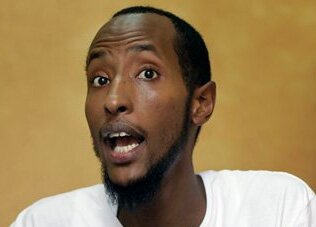YAHYA WEHELIE IS ALLOWED TO RETURN TO US
 Va. man stuck in Egypt on no-fly list coming to US
Va. man stuck in Egypt on no-fly list coming to US
McLEAN, Va. — A Virginia man whose travels to Yemen caught the attention of the FBI and landed him on the U.S. no-fly list, leaving him stuck in the Middle East for months, will be allowed to return to the U.S.
Yahya Wehelie, 26, of Burke, Va., has been stuck in Egypt for more than two months but is now expected to arrive in New York Friday afternoon. FBI agents had been questioning him about his time in Yemen, Wehelie said. He went to Yemen nearly two years ago at his parents’ urging to learn Arabic and gain some direction in his life.
Wehelie said in a phone interview Thursday that he does not know why U.S. officials reversed course, but said he holds no ill will toward the government for its investigation.
“I’m not angry at all. I know who I am and I knew eventually I would go home,” he said. “They’re trying to find the bad people, so more power to them.”
Wehelie, who is of Somali descent, said he is looking forward to a home-cooked meal of lasagna from his mother. Wehelie had been living in a ramshackle Cairo hotel and subsisting on fast food coupons provided to him by the U.S. embassy.
The Council on American-Islamic Relations, a Muslim advocacy group, had taken up Wehelie’s cause and questioned how Muslim citizens could be denied return to the country without due process.
CAIR spokesman Ibrahim Hooper said Thursday he is glad that Wehelie’s case has been resolved. But the overall concerns remain.
“It doesn’t alter the seemingly existing policy of barring Muslims from re-entry” to the United States and using the no-fly list to pressure Muslims into abandoning constitutional rights that would be afforded them if they were being questioned in the U.S., Hooper said.
Wehelie’s 19-year-old brother, Yusuf Wehelie, had also traveled to Yemen and was also questioned by U.S. authorities in Cairo. Yusuf Wehelie was allowed to return to the U.S., but not before he was interrogated for several days and shackled to a wall in an Egyptian jail, where he says he was mistreated.
Last month the American Civil Liberties Union filed a lawsuit challenging the constitutionality of the government’s no-fly list, saying that citizens are routinely placed on the list without good cause and without any recourse to clear their names.
A call to the FBI seeking comment was not immediately returned Thursday.
While Yemen has attracted attention in recent months as a hot spot in the war on terror, Wehelie’s family said it was natural for the family to send him there to study. Many Somalis live in Yemen, and educational opportunities there are cheaper than in other parts of the Middle East. Wehelie was studying information technology at the Lebanese International University.
While in Yemen, Wehelie married a Somali woman whose family had close ties to his own. Wehelie said he does not consider himself an especially observant Muslim and that he only visited a mosque a handful of times.
Wehelie’s mother, Shamsa Noor, referred questions to the family’s lawyer, Tom Echikson, who declined to comment.
__
AP
Comments
comments
 Calendar
Calendar






































